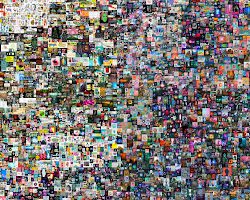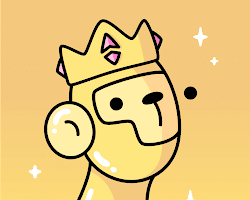Top 10 Influential People In The NFT Space

NFT, short for Non-Fungible Token, is a digital asset that represents ownership or proof of authenticity of a unique item or piece of content, using blockchain technology. Unlike cryptocurrencies such as Bitcoin or Ethereum, which are fungible and can be exchanged on a like-for-like basis, NFTs are unique and cannot be exchanged on a one-to-one basis. So like the crypto world NFT space is also filled with influential people.
NFT influencers paying other NFT influencers to pump their NFT project and the timeline is… celebrating that?
Thread Douche was paid 28+ ETH by Jack Ball Licker to pump Opepen.
This is not groundbreaking. This is pathetic.
The double standard in Web 3 is strong. pic.twitter.com/QNlmwVUsDp
— HashBastards (@HashBastardsNFT) July 17, 2023
At its core, an NFT is a digital certificate of ownership or proof of authenticity that is stored on a blockchain, typically the Ethereum blockchain, using smart contracts. The use of blockchain technology ensures transparency, immutability, and security, making it impossible to forge or tamper with the ownership records associated with an NFT.
NFTs can represent a wide range of digital and physical assets, including digital art, music, videos, virtual real estate, domain names, collectibles, and more. These assets are tokenized, meaning they are represented by a unique token or unit on the blockchain. Each NFT has a unique identifier and a set of metadata that provides information about the asset it represents.
One of the key features of NFTs is their ability to establish provable scarcity and ownership. Due to the nature of blockchain technology, each NFT can be traced back to its original creator or issuer and can be easily verified. This provides creators and artists with a new way to monetize their work, as they can sell their digital assets directly to collectors without the need for intermediaries.
The ownership and transaction history of NFTs can be publicly viewed on the blockchain, allowing for transparency and establishing a verifiable chain of custody. This has led to a surge in popularity and interest in the NFT market, with artists, musicians, celebrities, and brands embracing the technology to sell their unique creations and engage with their fans in new and innovative ways.
NFTs are typically bought, sold, and traded on specialized online platforms called NFT marketplaces. These platforms act as intermediaries, facilitating the buying and selling of NFTs, often through auction formats or direct sales. Some popular NFT marketplaces include OpenSea, Rarible, SuperRare, and NBA Top Shot.
Critics of NFTs raise concerns about the environmental impact of blockchain technology, particularly due to the energy consumption associated with transactions on the Ethereum network. The high energy consumption is attributed to the process of mining and validating transactions on the blockchain. Efforts are being made to develop more energy-efficient blockchain solutions to mitigate these concerns.
In conclusion, NFTs have gained significant attention and popularity as a new form of digital ownership and expression. They have revolutionized the way digital assets are bought, sold, and collected, providing artists and creators with new opportunities for monetization and engagement with their audience. However, as with any emerging technology, the long-term impact and sustainability of NFTs are subjects of ongoing discussion and exploration.
Also read: The Best NFT Collection That Is A Hit Among Collectors In 2023
Importance of NFTs for the Economy
NFTs (Non-Fungible Tokens) have emerged as a significant development in the digital economy, bringing about new possibilities and impacts on various sectors. Here are some key aspects highlighting the importance of NFTs for the economy:
1. Monetization of Digital Assets: NFTs provide a means for creators, artists, musicians, and other content creators to monetize their digital assets in a more direct and efficient manner. Previously, digital content could be easily copied and shared without providing proper compensation to the creators. NFTs enable creators to tokenize their work, establish ownership, and sell it directly to buyers, thereby unlocking new revenue streams and empowering content creators.
2. Authenticity and Provenance: NFTs offer a unique solution to prove the authenticity and provenance of digital assets. By utilizing blockchain technology, NFTs create an immutable and transparent record of ownership, transaction history, and metadata associated with each asset. This has significant implications, particularly in combating digital piracy, forgery, and plagiarism. Buyers can have confidence in the legitimacy and uniqueness of the assets they purchase, enhancing trust and value in the digital marketplace.
3. Empowering Artists and Creators: NFTs have democratized the art and creative industry by providing artists with direct access to a global market. Traditionally, artists relied on galleries, agents, or intermediaries to showcase and sell their work. NFTs eliminate these barriers by enabling artists to connect directly with buyers, retain more control over their creations, and receive a larger share of the profits. This empowerment has led to increased opportunities, recognition, and financial rewards for artists and creators.
4. Residual Income and Royalties: NFTs have introduced the concept of royalties and smart contracts in the digital realm. With smart contracts embedded in NFTs, creators can earn royalties every time their assets are resold. This mechanism ensures ongoing revenue streams for artists, even after the initial sale. This concept of residual income benefits both established artists and emerging talents, providing long-term sustainability and incentivizing the creation of valuable digital content.
5. Diversification of Investment Opportunities: NFTs have opened up new investment opportunities, allowing individuals to invest in digital assets and collectibles. Investors can purchase NFTs as speculative investments, anticipating their future value appreciation. Additionally, NFTs representing unique assets such as virtual real estate, virtual items in video games, or digital collectibles, offer investors the chance to participate in emerging markets with high growth potential.
6. Innovation and New Business Models: NFTs have sparked innovation and the emergence of new business models across various industries. Companies are exploring the integration of NFTs into gaming, virtual reality, fashion, music, sports, and more. NFTs enable the creation of virtual economies, where users can buy, sell, and trade digital assets within specific platforms or ecosystems. This opens up avenues for immersive experiences, brand collaborations, and unique interactions, driving economic growth and technological advancement.
7. Cultural Preservation and Ownership: NFTs have the potential to preserve and protect cultural heritage and intellectual property. By tokenizing and recording ownership of digital artifacts, historical items, or cultural assets, NFTs contribute to the preservation of cultural history and provide a mechanism for proper attribution and compensation to the rightful owners. This can be particularly impactful for indigenous communities, artists from underrepresented backgrounds, and marginalized creators.
While NFTs offer exciting opportunities, it is essential to navigate potential challenges, such as environmental concerns related to blockchain energy consumption and the need to address issues of inclusivity, accessibility, and market volatility. Nonetheless, NFTs are transforming the economy by revolutionizing the ownership and value creation of digital assets, empowering creators, and introducing new investment landscapes.
Also read: NFT 2.0: The Next Step in NFT Technology
Top 10 Influential People in the NFT Space
The non-fungible token (NFT) space is constantly evolving, and with it, the list of influential people who are shaping its future. Here are 10 of the most influential people in the NFT space today:
1. Beeple
Mike Winkelmann, better known by his pseudonym Beeple, is a digital artist who has become one of the most popular and successful NFT creators. His NFT artwork “Everydays: The First 5000 Days” sold for a record-breaking $69.3 million at Christie’s auction house in 2021. Beeple’s work is known for its often-surreal and visually striking imagery, which often comments on current events and social issues.

2. Gary Vaynerchuk
Gary Vaynerchuk, better known as Gary Vee, is a serial entrepreneur and investor who has become a leading voice in the NFT space. Vaynerchuk is a strong advocate for the potential of NFTs to revolutionize the way we interact with art, media, and ownership. He has also invested in a number of NFT projects, including VeeFriends, a collection of 10,255 NFTs that grant holders access to exclusive benefits.
3. Marc Cuban
Marc Cuban is a billionaire entrepreneur and owner of the Dallas Mavericks. Cuban has been a vocal supporter of NFTs, and he has invested in a number of NFT projects. He has also spoken out about the potential of NFTs to disrupt the traditional art world. 
4. Roham Gharegozlou
Roham Gharegozlou is the CEO of Dapper Labs, the company behind the popular NFT projects CryptoKitties and NBA Top Shot. Gharegozlou is a pioneer in the NFT space, and he has helped to bring NFTs to the mainstream.
5. Duncan and Griffin Cock Foster
Duncan and Griffin Cock Foster are the co-founders of Nifty Gateway, a leading NFT marketplace. Nifty Gateway has helped to make NFTs more accessible to mainstream buyers, and it has played a major role in the growth of the NFT market. 
6. Murat Pak
Murat Pak is a pseudonymous digital artist who has become one of the most popular NFT creators. Pak’s work is often abstract and minimalist, and it often explores themes of technology, identity, and the future.
7. Pranksy
Pranksy is a pseudonymous NFT collector who has become one of the most influential figures in the NFT community. Pranksy is known for his large collection of valuable NFTs, and he is also a vocal advocate for the NFT space. 
8. Yam Karkai
Yam Karkai is a digital artist who is known for her collection of NFTs called World of Women. World of Women is a collection of 10,000 NFTs that depict diverse female characters. Karkai’s work has been praised for its positive message and its representation of women in the NFT space.
9. DeezeFi
DeezeFi is a platform that allows users to buy and sell NFTs of music. DeezeFi has partnered with a number of major record labels, and it has helped to bring NFTs to the mainstream music industry.

10. The Sandbox
The Sandbox is a blockchain-based virtual world where users can buy, sell, and create NFTs. The Sandbox has been compared to Minecraft and Roblox, and it has the potential to revolutionize the way we interact with games and virtual worlds.
These are just a few of the most influential people in the NFT space today. The NFT space is constantly evolving, and it will be interesting to see who emerges as the most influential figures in the years to come.
Risks associated with NFTs
While NFTs (Non-Fungible Tokens) have gained significant popularity and brought about numerous opportunities, it is important to be aware of the risks and challenges associated with this emerging technology. Here are some key risks to consider:
1. Market Volatility: The NFT market is highly volatile and speculative. The value of NFTs can fluctuate dramatically, with some assets experiencing rapid price appreciation or depreciation. This volatility introduces the risk of financial losses for buyers and investors who may purchase NFTs at inflated prices, only to see their value diminish over time. It is crucial to exercise caution and conduct thorough research before making any investment in NFTs.
2. Lack of Regulation and Consumer Protection: The NFT market is currently unregulated in many jurisdictions. This absence of clear regulations and oversight poses risks for buyers and sellers. It may lead to fraudulent activities, scams, and the potential for manipulation of prices. Additionally, in case of disputes or issues related to ownership or authenticity, there may be limited legal recourse available to individuals. It is important for participants in the NFT market to exercise due diligence and engage with reputable platforms and sellers.
3. Counterfeit and Plagiarism: While NFTs aim to establish authenticity and provenance, there have been instances where counterfeit or plagiarized NFTs have emerged. Despite the blockchain’s transparent nature, the underlying digital assets associated with an NFT can be copied or replicated, leading to the sale of fraudulent or unauthorized versions. Buyers must be cautious and verify the credibility of the creators and the assets they are purchasing to mitigate the risk of acquiring counterfeit NFTs.
4. Environmental Impact: NFTs, particularly those built on the Ethereum blockchain, have faced criticism due to their significant energy consumption. The process of minting, buying, and selling NFTs requires substantial computational power, contributing to carbon emissions and environmental degradation. As the popularity of NFTs grows, it becomes crucial to address the environmental impact of blockchain technology and explore more sustainable alternatives.
5. Liquidity and Exit Strategy: While NFTs can be bought and sold on various marketplaces, there is a risk of illiquidity for certain assets. Some NFTs may have limited demand, making it difficult to find buyers when attempting to sell. Additionally, the process of converting NFTs back into fiat currency (traditional currency) can be challenging, with potential limitations on liquidity and a lack of established market infrastructure. Buyers should carefully consider their exit strategy and the potential challenges associated with selling their NFTs if desired.
6. Overvaluation and Hype-driven Market: The NFT market has witnessed instances of speculative hype and overvaluation. High-profile sales and celebrity endorsements have sometimes led to inflated prices, creating a sense of urgency and FOMO (Fear of Missing Out) among buyers. This speculative behavior can result in market bubbles and irrational pricing, which may not be sustainable in the long term. Investors should exercise caution and ensure they are making informed decisions based on the intrinsic value of the asset, rather than being influenced solely by market trends or celebrity involvement.
7. Inclusivity and Accessibility: NFTs have faced criticism for exacerbating wealth inequalities and exclusivity. High transaction fees, gas costs, and the requirement for cryptocurrency holdings can create barriers to entry for individuals with limited financial resources. Additionally, the technological complexity associated with buying, selling, and storing NFTs may deter or exclude certain demographics. Addressing these issues is crucial to ensure a more inclusive and accessible NFT ecosystem.
It is important to understand and evaluate these risks when engaging with NFTs. Educating oneself, conducting thorough research, and exercising caution are essential to navigate the evolving landscape of NFTs and make informed decisions while participating in this emerging market.
Also read: You must follow the top NFT Influencers right now!



























































